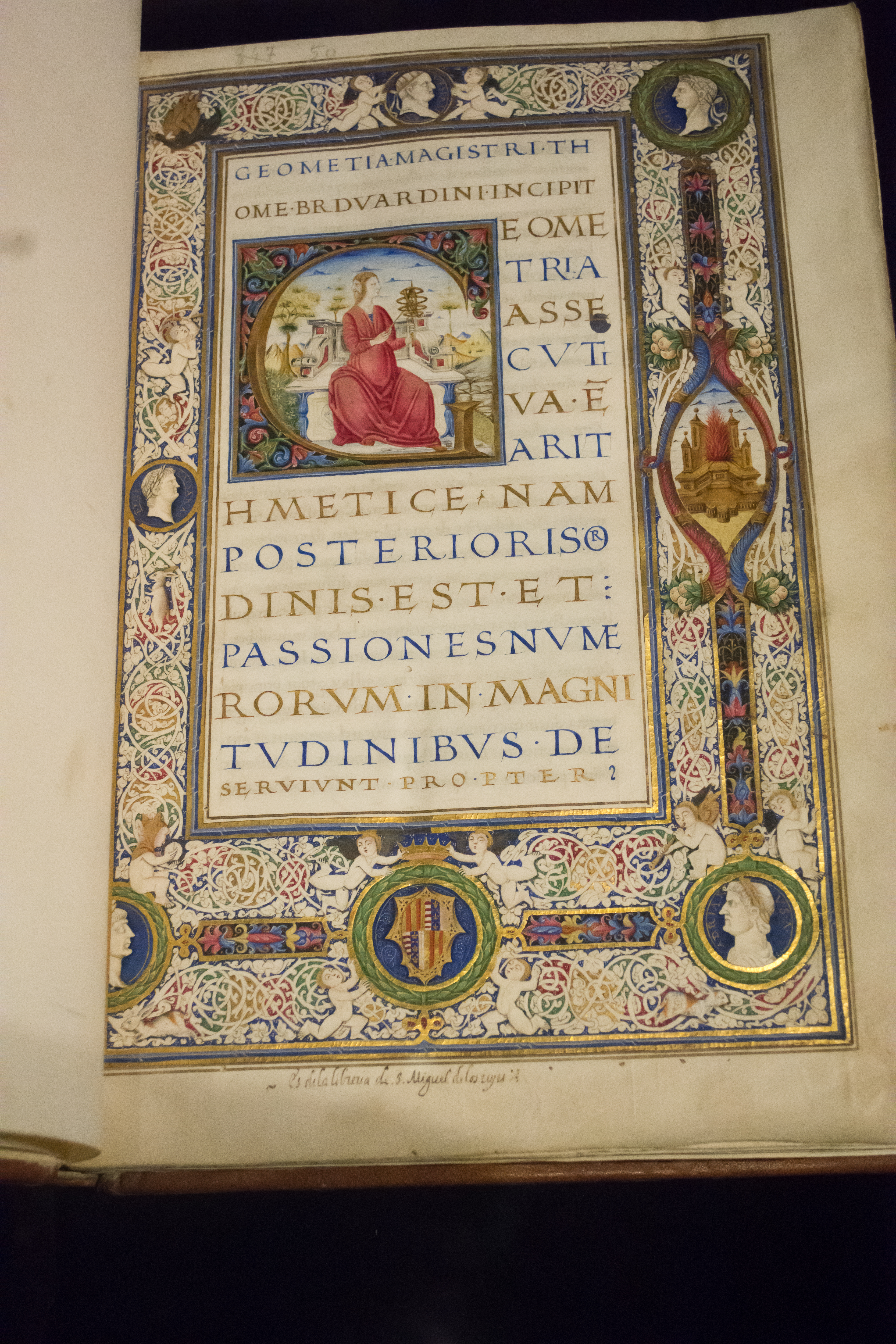Томас Брадвардин — философ, математик и механик, старший представитель группы oксфордских калькуляторов из Мертон-колледжа, членом которого он был с 1323. В 1349 был выбран архиепископом Кентерберийским и в этом же году умер от чумы.
Заметный интерес представляет трактат Брадвардина «О теоретической геометрии» . В первом отделе Брадвардин рассматривает звёздчатые многоугольники, получаемые из правильных выпуклых многоугольников путём продолжения их сторон до пересечения . Из этих звёздчатых многоугольников первого порядка таким же путём получаются звёздчатые многоугольники второго порядка , и так далее. Брадвардин установил общее правило для нахождения суммы внутренних углов таких звёздчатых многоугольников. Во втором отделе Брадвардин занимается изопериметрическими свойствами многоугольников, круга и шара, следуя анонимному арабскому переводу Зенодора. Здесь же подробно обсуждается проблема углов касания. Третий отдел трактата посвящён учению о пропорциях. В четвёртом отделе обсуждается теорема о существовании только пяти правильных многогранников и рассматривается вопрос о заполнении пространства правильными телами.
В трактате «О пропорциях скоростей при движении» Брадвардин сформулировал гипотетический закон, связывающий скорость движения тела, движущую силу и сопротивление среды. Согласно этому закону, отношение движущей силы к сопротивлению среды связано со скоростью тела показательной зависимостью.
«Трактат о континууме» посвящён учению о непрерывном и дискретном, лежащему на границе между физикой, математикой и философией. Брадвардин придерживается взглядов Аристотеля на бесконечную делимость континуума и критикует атомистическую концепцию континуума, выводя из неё разнообразные противоречивые следствия.
Брадвардину принадлежат также трактаты «О теоретической арифметике» , «О квадратуре круга» , «Искусство памяти» .
Wikipedia
✵
1300 – 26. Август 1349
